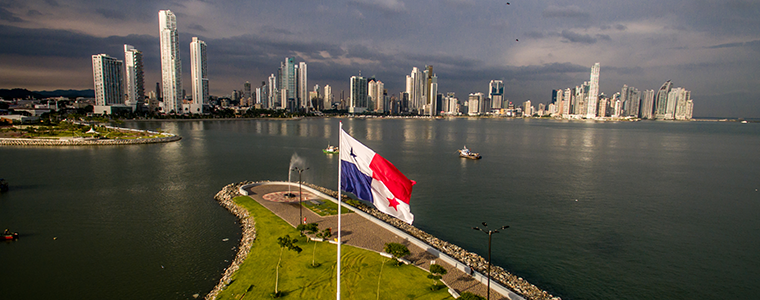Last week, the United Nations climate change negotiations took place in Bonn, Germany to define the rules to implement the Paris Agreement and discuss ways to increase global action on climate change. While these talks are essential for building progress, the world stands a scant chance of solving climate change unless the private sector steps up too.
The increasing frequency and intensity of extreme climatic events show us that time to secure a safe climate is rapidly evaporating. Last year, citizens from around the world were heavily impacted by floods, forest fires and an unprecedented hurricane season which left hundreds dead. In the U.S. alone 362 people lost their lives and the damages surpassed $300 billion setting a new annual record. Unsurprisingly, climate change, extreme weather, and natural disasters rank among the World Economic Forum‘s top global risks this year.
The costs of adapting to a changing climate are vast. The UN Environment Program estimates that the costs of adaptation in developing countries could range from US$ 140 billion to US$ 300 billion per year by 2030. Public resources alone cannot pick up the tab. By 2030, Latin America the Caribbean’s climate investment required to strengthen sea walls from rising seas and protecting tropical forests are estimated to be US$80 billion per year. To put this in perspective: In 2016, the Multilateral Development Banks financed a little over US$4 billion in climate change projects in Latin America and the Caribbean.
Investors and business leaders are increasingly aware that climate change threatens the stability of the financial system and could endanger profits. The physical risks of climate change including more intense hurricanes pose a threat to valuable assets including bridges and hotels. One study found that more than 80 percent of tourists to Barbados would not be willing to return for the same holiday price if climate change were to negatively affect the resorts. In a country reliant on tourism rising sea levels risk eroding its source of revenue and visitors.
The transition risks linked with regulatory responses to climate change, including the falling cost of renewable energy, could render fossil fuels increasingly less competitive. According to one study, global demand for fossil fuels could peak by 2020 with the power sector becoming virtually fossil-free by 2040 if efforts to reduce emissions are accelerated and clean technologies get considerably cheaper.
It is good news that the transition to a low carbon economy is likely happening faster than expected. The challenge is to ensure a smooth transition where potential risks are clearly identified and well managed. A study in Nature estimates that a significant amount of fossil fuels in Latin America would be ‘unburnable’ before 2050 without carbon capture and storage if we are to limit warming to 2 degrees Celsius. With abundant reserves across the region, investors should be wary that failure to consider these risks could affect economic and financial stability due to the increased possibility that assets may become stranded, suffering premature or unanticipated write-downs or losses.
Awareness is rising fast. Last year, Belize decided to implement an indefinite moratorium on all new oil exploration in its waters. In January, New York City announced a goal of divesting its $189 billion pension funds from fossil fuel companies within five years.
The Inter-American Development Bank Group is working with the private sector across the region on how to assess climate risk and make the business case for enhancing resilience. We are building on the work of the G20-backed Task Force on Climate-Related Financial Disclosure, which created recommendations for disclosing information about the risks and opportunities presented by climate change. These recommendations can support investors to obtain the information required to assess whether a company’s activities are consistent with the Paris Agreement.
Together with the Nordic Development Fund, the IDB launched the PROADAPT program to boost climate resilience and related business opportunities in micro, small and medium-size firms. PROADAPT has now committed over $10 million in technical assistance and leveraged a total of $21 million in the region. In Brazil, we are supporting water adaptation by helping the city of São Paulo, which is susceptible to severe drought, to conserve potable water by reducing used cooking oil in the sewage network.
At the AdaptAmericas event in Panama City on May 15-16, the IDB will be joined by business leaders and investors to discuss new ways to build resilience and to successfully adapt to climate change.
The private sector cannot solve global warming alone. Yet by seriously addressing climate risk and developing new business models for resiliency solutions, it can play a transformative role delivering a smooth transition and aligning financial flows towards low carbon and resilient development.


Leave a Reply